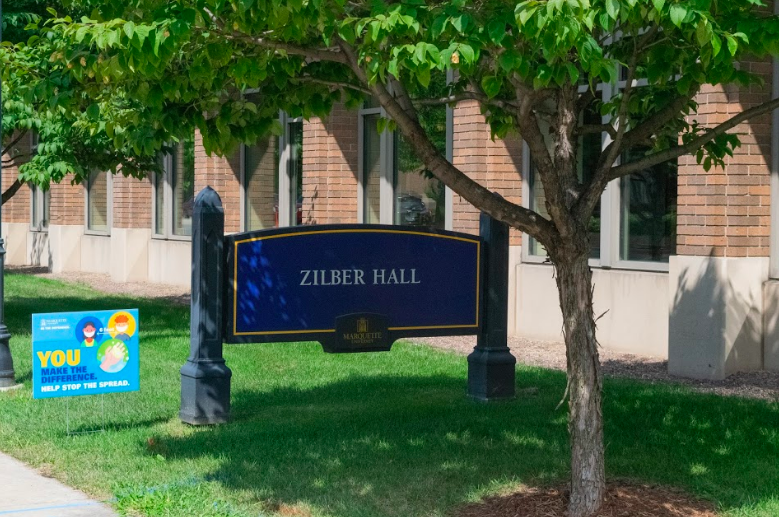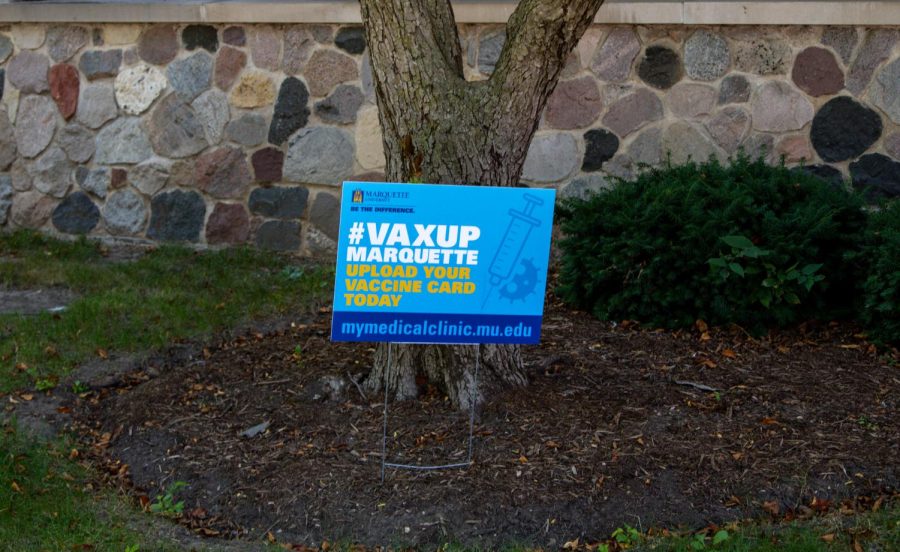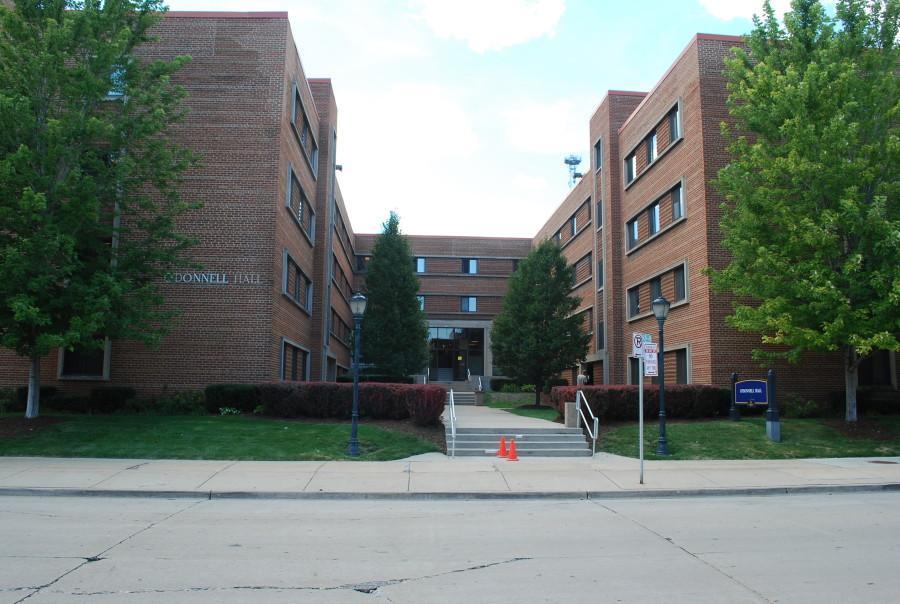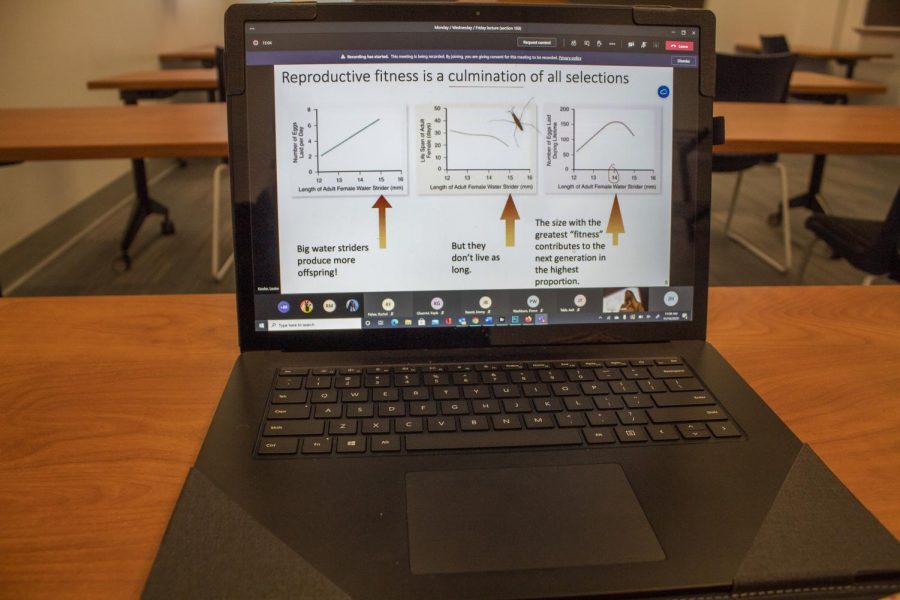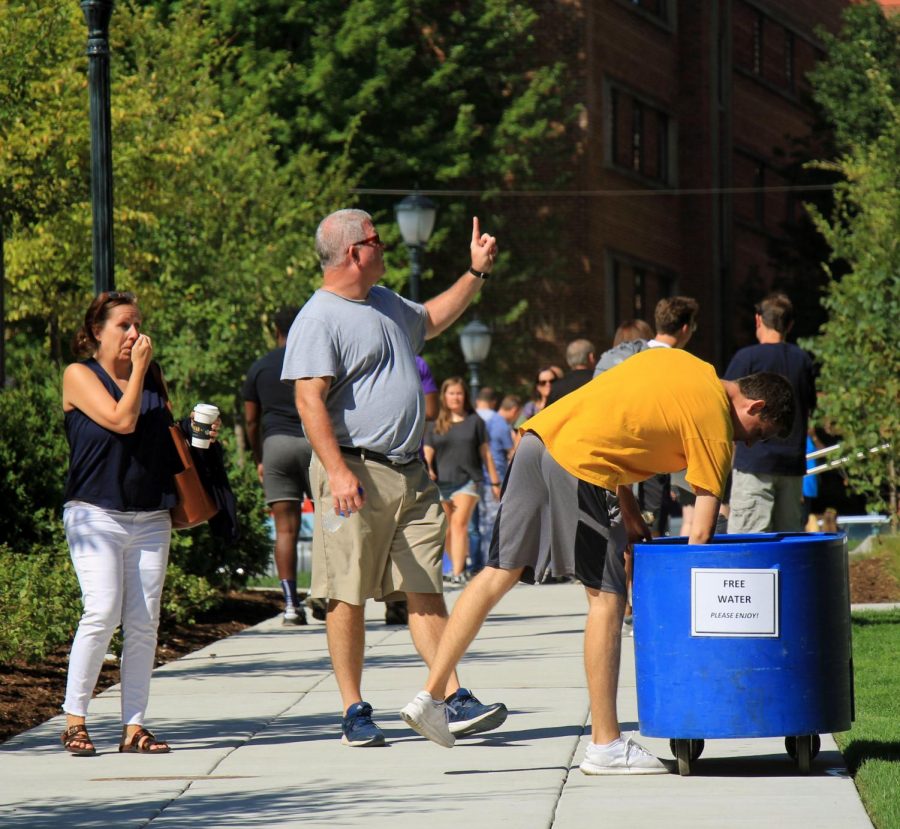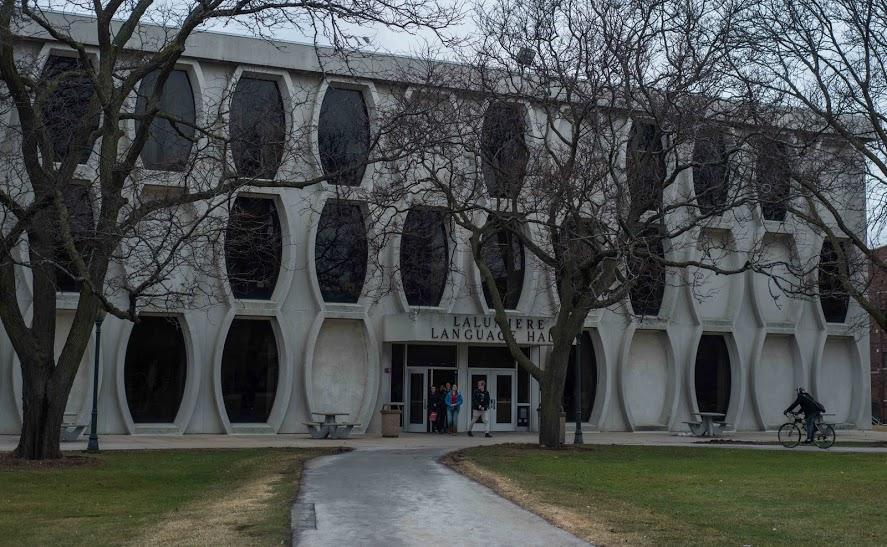Marquette University is a cog in a much larger machine, just as its students are part of the education machine that is the university. When the COVID-19 pandemic hit, the world began to see a cascade of effects, from widespread unemployment to Zoom meetings in pajama pants, and now to financial worries in higher education.
“When COVID-19 hit and we were forced to move to an entirely remote environment, the university saw an immediate short-term financial shortfall of about $15 million, most of that stemming from room and board refunds,” Joel Pogodzinski, senior vice president and chief operating officer, said in an email. “We moved swiftly and decisively to entirely cover that short-term loss through furloughs, renegotiated vendor contracts, discretionary spending reductions and CARES Act relief funds.”
Since March, the university has received around $6.6 million as part of the CARES Act’s relief funds, $3.3 million of which was directed by the U.S. Department of Education to be set aside for Marquette students with the most financial need.
The university’s efforts resulted in a recovery of the $15 million shortfall, and Marquette even ended the 2019-2020 fiscal year with a slight surplus. However, the coming year may pose a greater financial threat to Marquette as well as other universities, such as University of North Carolina-Chapel Hill moved online and Notre Dame paused in-person classes for two weeks a mere week after opening with in-person classes.
In a non-COVID-19 year, tuition and fees contribute to $256,633 or 54% of the university’s total operating revenues, according to Marquette’s 2019 financial report. Room and board follows, making up 11%. The other 35% comes from grants, contributions, invest and endowment income and other forms of income.
When it comes to normal total operating expenditures, instruction costs $124,496, or 28% of the university’s annual expenses, according to the same report. Institutional support comes in at 20%, student services at 15% and academic support at 14%. The rest of the university’s annual spending goes towards research and grants, auxiliary enterprises and public service.
With COVID-19 posing a very real and present danger, the university has about $20-25 million in known financial risks, with some of this money allocated towards health and safety measures, Pogodzinski said.
“The actual number could be much higher and will depend on the final count for first-year students, attrition among our returning students, whether we are residential for part or all of the academic year, and the impact of other lost revenues,” Pogodzinski said in an email.
He said that other factors, such as cleaning and technology costs, dedensification and health services like testing, tracing and additional care will all contribute to the year’s financial risks as well.
“Nearly 5,000 alumni, parents and friends donated to the recent face mask fundraiser, organized by University Advancement, and raised more than $200,000 to support Marquette students who are training to be on the front lines of health care,” Pogodzinski said in an email.
Marquette announced Aug. 5 that fall instruction would begin a hybrid plan, with both in-person and online classes being offered. Among other announcements, the university said that first-years could live at home if they took all online classes and sophomores could live in apartments or off-campus rather than the usual residence hall requirement.
“It was important that we de-densify our residence halls for the health and safety of our campus community,” Pogodzinski said in an email. “While it does contribute to increased revenue shortfall for this year, it was important to us to give our students additional choices on their modality of instruction, as well as their housing preference to help manage the health, safety, economics and other personal choices.”
In a letter to the Marquette community June 22, University President Michael Lovell announced several mitigation strategies to offset coming financial risks, both short and long term. These strategies included salary reductions for the University Leadership Council, suspension of employer contributions to Marquette’s 403(b) retirement plan for the coming fiscal year and a pause on all nonessential hiring.
“No matter what happens, it’s clear the fall 2020 semester will look and feel different than past semesters,” Lovell said in the letter. “We should all anticipate changes to how we interact with each other so that we may demonstrate care and concern for the most vulnerable among us and help limit the spread of the coronavirus.”
Lovell stressed that there must be a balance between cura personalis — care for the whole person and cura apostolica — care for the work and the institution.
“We expect additional mitigating measures to continue to help keep the university as financially healthy as possible, in order to uphold our commitment of delivering a transformational education and experience for our students,” Pogodzinski said in an email. “We will monitor our upcoming admissions cycle and will communicate tuition decisions later this calendar year.”
Despite cuts in discretionary spending, the College of Arts & Sciences will employ an associate director of career diversity through 2025 thanks to the Humanities Without Walls Award, which is worth $1.3 million and fosters collaborative research, according to a university news release.
“Sometimes there is an assumption that various serious challenges we face in the world — the coronavirus pandemic, new technologies, racial disparities, or disruptions in the nitrogen or phosphorus cycle of the earth — are simply technical or scientific issues,” Heidi Bostic, dean of the College of Arts & Sciences, said. “Yet, we know at the heart of all of these challenges lie the basic questions of who we are and how we should live. For that reason, the humanities and broad liberal arts are crucial to addressing grand challenges.”
Additionally, Marquette alumni Jeff and Sarah Joerres have donated $1.5 million to the university, with half supporting study abroad opportunities for first-generation students and the other half to the university’s Neuro Recovery Clinic, which treats people with chronic disabilities that stem from neurological conditions such as stroke or brain injury.
William Welburn, vice president for inclusive excellence, said that these study abroad experience provide students with new vantage points and world views.
“Several studies show that high-impact experiences are a crucial component to retaining and engaging diverse students,” Welburn said.
Even with the university’s known financial risks, credit rating agency Moody’s recently gave the university an A2 rating, which means “investment grade,” and determined Marquette’s outlook as stable and is better than the outlook for the higher education industry as a whole.
Pogodzinski said that though the university will face financial challenges as the result of the pandemic, Marquette’s overall financial picture remains strong.
“Know that when we do have to make tough decisions, we will do so in the interest of the greater good,” Pogodzinski said in an email. “We want to ensure Marquette’s longevity, so that we can continue to provide a transformational Catholic, Jesuit education to students for at least another 140 years.”
This story was written by Shir Bloch. She can be reached at shir.bloch@marquette.edu.

